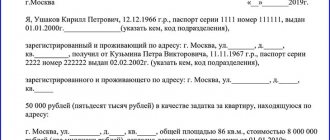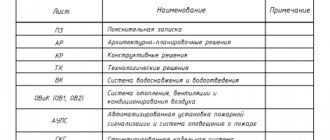1. The buyer is obliged to pay for the goods immediately before or after the seller transfers the goods to him, unless otherwise provided by this Code, another law, other legal acts or a purchase and sale agreement and does not follow from the essence of the obligation.
2. If the purchase and sale agreement does not provide for payment in installments for the goods, the buyer is obliged to pay the seller the price of the transferred goods in full.
3. If the buyer does not timely pay for the goods transferred in accordance with the purchase and sale agreement, the seller has the right to demand payment for the goods and interest in accordance with Article 395 of this Code.
4. If the buyer, in violation of the sales contract, refuses to accept and pay for the goods, the seller has the right, at his choice, to demand payment for the goods or refuse to fulfill the contract.
5. In cases where the seller, in accordance with the purchase and sale agreement, is obliged to transfer to the buyer not only goods that have not been paid for by the buyer, but also other goods, the seller has the right to suspend the transfer of these goods until full payment for all previously transferred goods, unless otherwise provided by law , other legal acts or agreement.
Forms and methods: possible options
Various options for payment for fulfilled obligations are provided for in the Civil Code of the Russian Federation. The choice of a specific method depends on the will of the parties, the type of contract being concluded, and the legal requirements for it. According to the general rule of Art. 424 of the Civil Code of the Russian Federation, the price may not be established in the agreement; in this case, it is determined by law enforcement practice. For some types of contracts, an essential condition (without which the contract is considered not concluded) is the payment procedure itself. This is a very common agreement in business for the supply of goods.
In accordance with the Civil Code of the Russian Federation and business customs, what are the forms of payment under the contract:
- in cash: in cash at the cash desk (subject to the established restrictions for legal entities) or by transfer;
- goods;
- offset.
Options for specifying payment terms in the contract:
- until the moment of execution (transfer of an item, performance of services, performance of work, etc.) in whole or in part, in advance;
- after fulfilling obligations immediately or in parts. That is, with installments, periodic payments or deferment - one payment;
- subscription fee, that is, payment is made periodically during the contract.
A few examples of how to specify the payment procedure (wording) in the contract:
- “by transfer by payment order to the buyer’s account”;
- “cash to the enterprise’s cash desk”;
- “with an advance of 50%”;
- “no prepayment”;
- “in full after signing the transfer deed.”
To choose the appropriate method and formulate the wording correctly, it is recommended to consider all options and take into account law enforcement practice. For example, for non-cash transfers there are several methods (collection, letter of credit, checks, electronic means of payment), they are specifically indicated in the contract with details in order to avoid disagreements. Most often, transfers to a current account are used for payment orders. The counterparty is immediately notified of changes in details.
Article 486 of the Civil Code of the Russian Federation. Payment for goods (current edition)
1. The buyer is obliged to pay for the goods before or after their transfer to him, with the specifications established by the sales contract.
Payment for goods is possible in different ways depending on the terms of the contract, that is, it can be the direct delivery of funds to the seller, the transfer of funds to his bank account by payment orders, the transfer of funds to a bank card, the delivery of funds to the seller’s representatives, etc.
Payment for goods can be made at a time or in installments. If payment for the goods is made at a time, the buyer is obliged to pay for the goods in full in accordance with its price.
If the buyer does not pay for the goods transferred to him within the time limits established by the sales contract or legislation, the seller has the right to demand payment for the goods. As a rule, the seller initially makes a demand to the buyer to pay the price for the goods. This requirement can be presented both pre-trial and in court.
We believe that if, after presenting this demand, the buyer does not pay for the goods, then the seller also has the right to refuse to fulfill the contract by presenting a demand for the return of the unpaid goods, as well as for compensation for losses caused.
If the goods have not yet been transferred to the buyer, and the buyer refuses to accept and pay for the goods, the seller can either demand payment or refuse to execute the sales contract.
In practice, in this case, situations are possible when the seller, in pre-trial order, makes demands on the buyer to pay for the goods, but the buyer, despite the demands presented to him, does not pay for the goods. In this case, the seller has the right to refuse to fulfill the sales contract and demand compensation for losses caused to him.
If the seller is obliged to transfer several goods to the buyer and after transferring some of the goods the buyer does not pay for them, then the seller has the right to suspend the transfer of all goods until the buyer pays for them in full. Similar to the above rights of the seller, we believe that if the buyer refuses to pay for the part of the goods transferred to him and subsequent parts, then the seller has the right to demand the return of the unpaid part of the goods, as well as refuse to fulfill the contract.
2. Applicable law:
— Law of the Russian Federation dated 02/07/1992 N 2300-1 “On the protection of consumer rights.”
3. Judicial practice:
— Determination of the Investigative Committee for civil cases of the Armed Forces of the Russian Federation dated 06/03/2008 N 5-B08-8;
— Resolution of the Federal Antimonopoly Service of the North Caucasus District dated August 17, 2005 N F08-3593/05;
— Resolution of the Seventeenth Arbitration Court of Appeal dated April 16, 2014 N 17AP-3020/14;
— Resolution of the Twentieth Arbitration Court of Appeal dated December 7, 2010 N 20AP-5137/10;
— Resolution of the Seventeenth Arbitration Court of Appeal dated January 14, 2010 N 17AP-12443/09;
— Resolution of the Twentieth Arbitration Court of Appeal dated May 28, 2009 N 20AP-1842/2009;
— Resolution of the Federal Antimonopoly Service of the Volga-Vyatka District dated 05.05.2008 in case No. A11-169/2007-K1-17/51
— Resolution of the Federal Antimonopoly Service of the Central District dated November 11, 2010 in case No. A54-1969/2009C11.
Comment source:
“COMMENTARY ON THE CIVIL CODE OF THE RUSSIAN FEDERATION. PART TWO OF JANUARY 26, 1996 No. 14-FZ"
ON THE. Barinov, S.A. Baryshev, E.A. Bevzyuk, M.A. Belyaev, T.A. Biryukova, Yu.N. Vakhrusheva, R.R. Dolotina, N.V. Elizarova, R.Yu. Zakirov, N.A. Zakharova, P.Z. Ivanishin, S.Yu. Morozov, T.N. Mikhaleva, 2014
How to register an actual calculation
In practice, payment for work performed and payment for goods under a supply contract are not often included in the contract; this option carries great risks for the contractor.
It is recommended to include the following points in the agreement.
Specific payment period. The date is not necessary; it is possible to link the period to an inevitable event (acceptance of work, services, conclusion of an agreement).
Example:
| The customer undertakes to make payment no later than 10 calendar days from the date of signing the acceptance certificate for the services provided. |
Penalties and penalties for late payments. Usually a percentage is set for each day, the amount must correspond to practice, otherwise it may be reduced in court. It is not profitable for the customer to include this item.
On the issue of the limitation period under an agreement with an indefinite period
In recent months, the legal community's attention to the issue of the limitation period for an obligation with an indefinite period has intensified. On the one hand, commentators argue that the issue is established in practice and does not require clarification; on the other hand, they do not notice changes in the wording of articles of the Civil Code of the Russian Federation, contradictory practices and incorrect approaches of the courts to resolving this issue.
According to the general rule established in paragraph 2 of Art. 314 of the Civil Code of the Russian Federation (term for fulfillment of an obligation), in cases where the obligation does not provide for a period for its fulfillment and does not contain conditions allowing to determine this period, as well as in cases where the period for fulfillment of the obligation is determined by the moment of demand, the obligation must be fulfilled within seven days from the date the creditor submits a demand for its fulfillment, unless the obligation to perform within a different period is provided for by law, other legal acts, terms of the obligation, or does not follow from customs or the essence of the obligation. If the creditor fails to submit a demand for the fulfillment of such an obligation within a reasonable time, the debtor has the right to demand that the creditor accept performance, unless otherwise provided by law, other legal acts, the terms of the obligation, or is clear from customs or the essence of the obligation.
At the same time, the opinion is expressed that Art. 486 of the Civil Code of the Russian Federation (payment for goods) establishes the procedure for payment under a sales contract with an indefinite period of payment for goods, according to which the buyer is obliged to pay for the goods exclusively before or immediately after receiving the goods (see for example: https://www.advgazeta.ru/mneniya /osobennosti-otchuzhdeniya-aktsiy-po-ustnoy-sdelke/?sphrase_id=56495, https://rapsinews.ru/judicial_news/20191205/305154781.html).
In this regard, attention should be paid to two circumstances:
1) art. 486 of the Civil Code of the Russian Federation does not contain any mention of contracts with an indefinite period and establishes a general rule for sales contracts;
2) the buyer’s obligation to pay for the goods immediately before or after the transfer of the goods by the seller is conditioned by the absence of other initial conditions provided for by the Civil Code, another legal act, the sale and purchase agreement itself, or those arising from the essence of the obligation.
Article 314 of the Civil Code of the Russian Federation establishes a special rule relating to cases when the agreement does not contain any deadline for the fulfillment of the obligation. In addition, the essence of the obligation may exclude the possibility of the buyer fulfilling the obligation to pay immediately before or after the transfer of the goods. An example would be the absence of a price determined by the parties that the buyer could pay to the seller.
In addition, para. 2 p. 2 art. 200 of the Civil Code of the Russian Federation (the beginning of the limitation period) also directly establishes that for obligations for which the deadline for fulfillment is not determined or is determined by the moment of demand, the limitation period begins to run from the day the creditor presents a demand for fulfillment of the obligation. At the same time, in the old version of Article 200 of the Civil Code of the Russian Federation, which was in force before the amendments were made by Federal Law No. 100-FZ of 05/07/2013, there was a direct indication that “the limitation period begins from the moment when the creditor has the right to make a claim for execution obligations."
It is obvious that after the changes made to Art. 200 of the Civil Code of the Russian Federation in 2013, the Civil Code in Articles 200 and 314 of the Civil Code of the Russian Federation resolved the issue of the moment when the limitation period begins to run under contracts with an indefinite period of fulfillment of the obligation.
Articles 200 and 314 of the Civil Code of the Russian Federation are the very same norms provided for by the Civil Code, which are mentioned in paragraph 1 of Art. 486 of the Civil Code of the Russian Federation, applicable to contracts with an indefinite period, and establishing the limitation period from the moment the creditor submits a demand for fulfillment of the obligation.
On January 21, 2021, the Supreme Court issued a ruling in case No. 305-ES19-18457, which addressed the issue in question. https://kad.arbitr.ru/Document/Pdf/d6d8fa63-744c-4b89-a731-73d37fa993e6/91824f8a-f233-4999-a608-9bb45870efd5/A40-169343-2018_20200121_Opredelenie.pdf?isAd dStamp=True.
In this ruling, the Supreme Court did not see in the case materials confirmation of the parties’ agreement on an agreement to pay for securities on deferred payment terms. Also, the court did not find any other evidence of the parties’ agreement on the payment period. At the same time, the court mentioned the provision of paragraph 2 of Art. 200 of the Civil Code of the Russian Federation on obligations with a certain period of fulfillment, but omitted paragraph 2 of the same paragraph 2 of Art. 200 of the Civil Code of the Russian Federation, which concerns obligations for which the fulfillment period is not defined, in respect of which the statute of limitations begins to run from the day the creditor submits a demand for fulfillment of the obligation.
Thus, the Supreme Court did not find a deadline for fulfilling the obligation, but applied paragraph 1 of paragraph 2 of Art. 200 of the Civil Code of the Russian Federation, concerning obligations with a certain period, and paragraph 1 of Art. 486 of the Civil Code of the Russian Federation.
How to negotiate an advance
This is the most common way to agree on the calculation procedure. Concluding an agreement for payment before receiving the goods (service, work) is partially equally beneficial for both the customer (seller) and the contractor (buyer). Risks remain, but are minimized for both parties.
Based on judicial practice, in order to avoid disputes, it is recommended to stipulate the following conditions in the contract:
Term
A term indicating a specific date or a specific period, event (most often, the conclusion of an agreement).
Example:
| The customer undertakes to make an advance payment on August 20, 2020. |
Or this way:
| The customer is obliged to make an advance payment no later than 7 calendar days from the date of signing this contract. |
Size
Amount or percentage.
Example:
| The customer undertakes to pay for the work within the following terms: before August 20, 2020 - 50% of the contract price; within no later than 7 calendar days from the date of signing the acceptance certificate - the remaining 50%. |
A link to the payment schedule contained in the application is permitted. In this case, it is necessary to stipulate in the contract that the application is an integral part of it, the application itself must be signed by the parties and filed with all copies.
The Supreme Court stood up for an apartment buyer who was late in payment
Payment with delay
On July 4, 2021, Lyudmila Kovalenko* entered into a preliminary agreement for the purchase and sale of an apartment with an area of 43.62 square meters with individual entrepreneur Lev Khalatov. m in a house under construction in Gelendzhik for 2.1 million rubles. Of these, 950,000 rubles. she paid when signing the contract, and the rest had to be paid in installments: 600,000 rubles. until July 5 and 630,000 rubles. until December 25, 2017.
The first 600,000 rubles. Kovalenko paid it in on time, but delayed with the rest. She gave half of the required amount (300,000 rubles) only on May 8, 2018. The parties drew up a receipt to this effect and verbally agreed on a new payment schedule. But Kovalenko broke it again. She promised to repay the entire debt by September 1, but on that day she still owed 191,000 rubles.
On September 20, 2018, the seller announced that he was unilaterally terminating the preliminary agreement because the buyer had violated the terms of the agreement. The entrepreneur opened a current account in the name of Kovalenko and returned to it all the money received from the buyer (1.9 million rubles).
Oblige to sell the apartment
Kovalenko did not agree with this, she demanded to take the rest of the money and conclude the main purchase and sale agreement, and after refusal she went to court. She asked to recognize her ownership of the apartment. The plaintiff deposited the total cost of housing into the deposit account of the Office of the Judicial Department at the Supreme Court in the Krasnodar Territory and asked to pay these funds to the defendant. According to her, they agreed that after the preliminary one they would conclude the main purchase and sale agreement. But the seller did not do this, thereby violating the terms of the deal.
The apartment turned out to be smaller: when will the developer return the overpayment?
The Gelendzhik City Court of the Krasnodar Territory drew attention to the fact that the plaintiff had repeatedly violated the essential terms of the preliminary agreement regarding payment. First, she did not deposit the money until December 25, 2017, as promised, and then until September 1. Therefore, the entrepreneur could terminate the agreement. This is what the first instance decided and denied the plaintiff.
The appeal added that the relations that arose are regulated by the provisions of the Federal Law of December 30, 2004 No. 214-FZ “On participation in shared construction of apartment buildings and other real estate and on amendments to certain legislative acts of the Russian Federation.” According to Part 5 of Art. 5, if the shareholder violates the deadlines for making payments, then the developer can terminate the contract unilaterally. Therefore, the court upheld the decision of the first instance, and the cassation agreed with this. Then Kovalenko complained to the Supreme Court.
Pay attention to the essence of the contract
Case No. 18-KG21-29-K4 was considered by a trio of judges of the Supreme Court, chaired by Yuri Moskalenko. Regardless of the name of the contract, courts need to establish its actual content. Thus, the plaintiff and defendant agreed that the sale of the disputed apartment would occur after the transfer of the entire amount for the transaction and called the concluded agreement preliminary. But he is not such within the meaning of Art. 429 Civil Code (“Preliminary agreement”). Essentially, the parties signed a purchase and sale agreement with the condition of advance payment, the troika emphasized.
What should a shareholder do if the developer installed the wrong windows, the Supreme Court decided
Depending on what kind of agreement there was, the courts had to determine the law to apply in resolving the dispute. According to the appeal, one should have been guided by the norms of the law “On participation in shared construction”, because the seller and the buyer are a shareholder and a developer. But in the case materials there are no documents that would confirm that it was Khalatov who built the apartment building. The Supreme Court emphasized that this law could not be applied for another reason: long before the parties agreed to sell the apartment, in 2006, the requirements for developers were tightened and individual entrepreneurs were prohibited from doing this.
As for violation of payment deadlines, the Supreme Court recalled the provisions of clause 5 of Art. 450.1 of the Civil Code (“Refusal of the contract (execution of the contract) or the exercise of rights under the contract”). The rule states that if a party could refuse an agreement, and then confirmed the validity of the agreement, then it can no longer refuse it on the same basis. Khalatov accepted money from Kovalenko even after her delays, which means he confirmed that the agreement was in force. Thus, he lost the right to terminate the contract.
As a result, the Supreme Court canceled the acts of three instances and returned the dispute to the Gelendzhik City Court. The case has not yet been reconsidered.
Experts: The individual entrepreneur could not terminate the contract
Andrey Bolshakov, managing partner of Bolshakov&Partners Bolshakov&Partners Federal rating. Land Law/Commercial Real Estate/Construction group, suggested that the individual entrepreneur could have concluded a preliminary purchase and sale agreement with the housing developer. According to the expert, this is permissible in relations between the developer and the individual entrepreneur, which is partly a circumvention of 214-FZ. And the individual entrepreneur, in turn, entered into a purchase and sale agreement for the same apartment with the plaintiff.
Therefore, the Supreme Court correctly qualified the agreement between Kovalenko and Khalatov as a purchase and sale agreement, Bolshakov believes. Accordingly, the rules of Chapter 30 of the Civil Code, which govern the procedure for terminating the purchase and sale agreement, must be applied to the agreement. Bolshakov believes that this case can help form an understanding of the legal essence of legal relations for the sale of real estate under construction outside the framework of 214-FZ.
*The names and surnames of the participants in the dispute have been changed by the editors.
- Anastasia Sinchenkova
- Supreme Court of the Russian Federation
- Civil process





